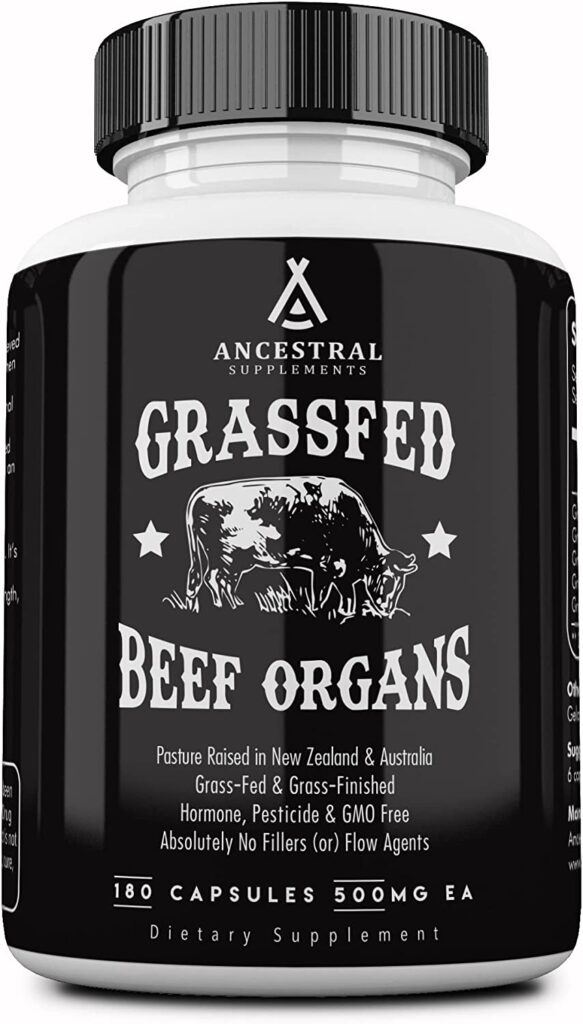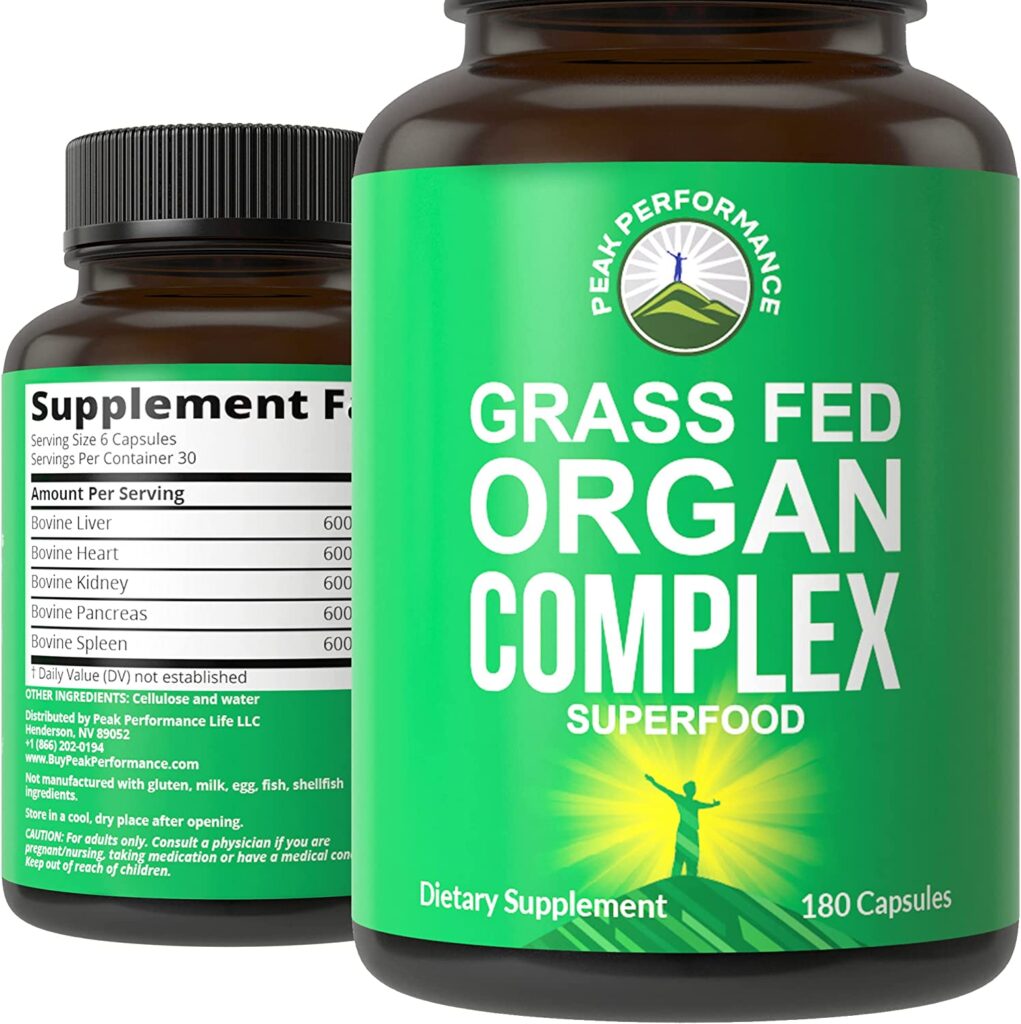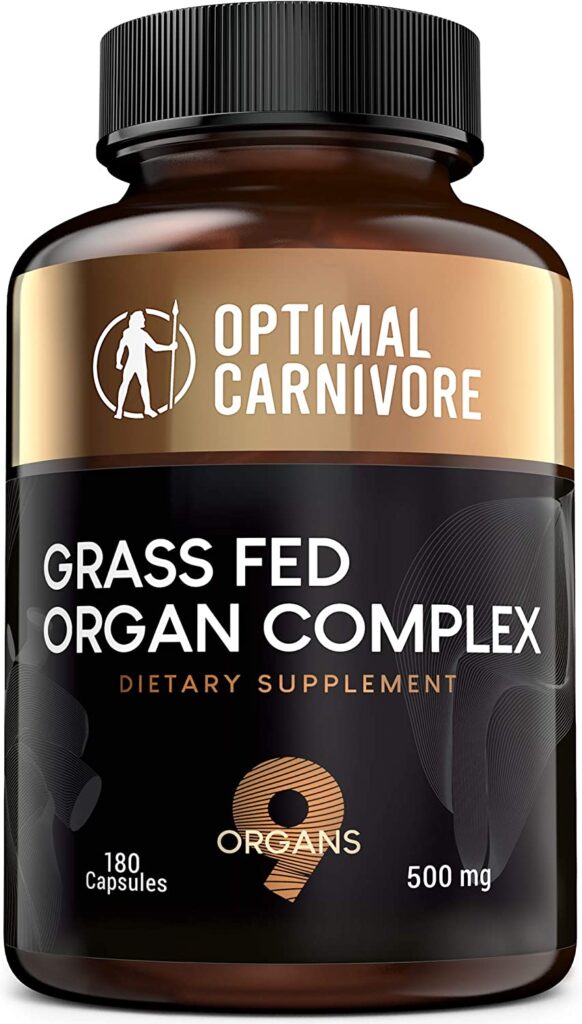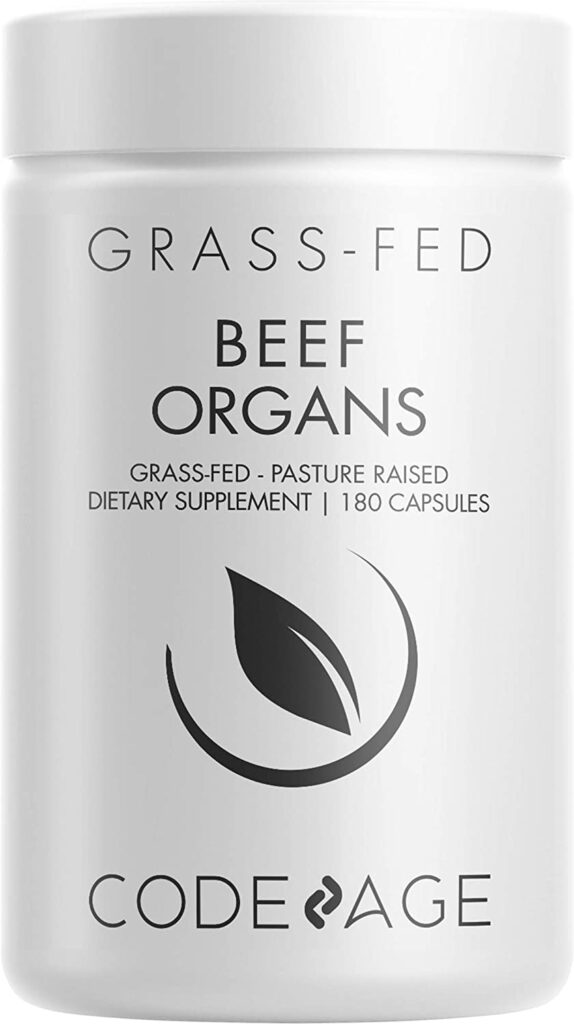Grass-Fed Beef Organ Supplement Benefits
Grass-fed beef organ supplements are a popular form of nutrition that is rich in nutrients and beneficial for overall health. The liver is the best of the organs being the most nutritious. however, the heart and tongue are popular choices for consumption.
Some of the benefits include:
- Higher Nutrient Content: Grass-fed beef organs are a rich source of vitamins, minerals, and other essential nutrients such as iron, zinc, vitamin B12, and omega-3 fatty acids.
- Better Fat Profile: Compared to grain-fed beef, grass-fed beef organ supplements are higher in healthy monounsaturated and polyunsaturated fats, and lower in unhealthy saturated fats.
- Improved Immune Function: Beef organs contain immune-boosting nutrients like selenium and vitamin E, which help to keep the immune system strong and functioning properly.
- Better Digestive Health: Beef liver is particularly rich in vitamins A, D, and K, which are essential for healthy digestion and gut function.
- Reduced Inflammation: The omega-3 fatty acids found in grass-fed beef organ supplements can help to reduce inflammation throughout the body, which is important for reducing the risk of chronic diseases.
- Increased Energy: Beef liver is a rich source of iron, which is essential for healthy blood flow and energy production.
- Better Brain Health: The high levels of vitamin B12, iron, and omega-3 fatty acids found in grass-fed beef organ supplements can help to improve brain function and reduce the risk of cognitive decline.
It’s important to note that not all grass-fed beef organ supplements are created equal. Some may contain added hormones, antibiotics, or other additives, so it’s essential to choose a high-quality, pure product from a reputable source.
What to look for in a good supplement
Here are some factors to consider when choosing the best grass-fed beef organ supplements:
- Quality: Look for supplements that are made from high-quality, grass-fed beef organs that are free from hormones, antibiotics, and other additives.
- Purity: Make sure the supplements are free from contaminants, such as heavy metals or pesticides, and are manufactured in facilities that are GMP certified.
- Nutrient content: Check the label to see how much of each nutrient is included in each serving and choose a supplement that meets your specific needs.
- Brand reputation: Choose a reputable brand that has a proven track record of providing high-quality supplements and has positive customer reviews.
- Price: While it’s important to choose a high-quality supplement, it’s also important to choose one that fits within your budget.
Is it safe to eat Organ meat every day?
Excessive amounts of vitamin A can be toxic and lead to symptoms like nausea, dizziness, headache, and even hair loss. It is also important to note that some organs, such as the liver, are high in cholesterol and can contribute to an increased risk of heart disease if consumed in large amounts.
It is best to consume beef organs in moderation as part of a well-rounded, balanced diet. A serving size of 4-6 ounces per week is a good starting point. Additionally, it’s important to choose high-quality, grass-fed beef organ supplements that are free from hormones, antibiotics, and other additives.
Benefits of supplements over fresh
There are both benefits and drawbacks to taking grass-fed beef organ supplements as opposed to consuming fresh grass-fed beef organs. Some of the benefits of supplements include:
- Convenience: Supplements are easy to take and can be stored for long periods, making them a convenient option for those who don’t have access to fresh grass-fed beef organs.
- Consistent nutrient content: Supplements are standardized to contain a specific amount of nutrients, which ensures consistent dosing and eliminates the variability that can occur when consuming fresh grass-fed beef organs.
- Portability: Supplements are easy to take on the go and can be taken anywhere, making them a convenient option for people who are always on the move.
- Controlled serving size: Supplements come in a pre-determined serving size, which makes it easier to control the number of nutrients consumed and avoid overconsumption.
However, there are also some drawbacks to taking supplements over consuming fresh grass-fed beef organs. Some of the drawbacks include:
- Reduced nutrient quality: Supplements can lose some of their nutrient quality during the processing and manufacturing stages, and some supplements may contain additives or fillers that can detract from their overall health benefits.
- Lack of fiber: Supplements do not contain fiber, which is an important part of a healthy diet and helps to promote digestive health.
- Possible side effects: Some people may experience side effects from taking supplements, such as upset stomach, headaches, or allergic reactions.
Ultimately, the best approach to getting the benefits of grass-fed beef organs is to consume a combination of both fresh grass-fed beef organs and supplements as part of a well-rounded, balanced diet. This can help to ensure that you are getting a consistent supply of essential nutrients while still taking advantage of the convenience and control offered by supplements.
Brands to consider:
#1 Ancestral
600mg tablets, Liver, Heart, spleen, pancreas, and kidneys. 6 capsules daily. Find it here:

#2 Peak Performance
600mg supplements, Liver, heart, kidney, pancreas, and spleen. 6 tablets daily. Find it here:

#3 Optimal Carnivore

Liver, Brain, Heart, Thymus, Kidney, Spleen, Gallbladder, Pancreas, and Lung. Mg range from 240mg – 540mg. 6 capsules daily. Find it here:
#4 Codeage

600mg, 6 capsules daily. Liver, Spleen, heart, pancreas, and kidney. Find it here:



